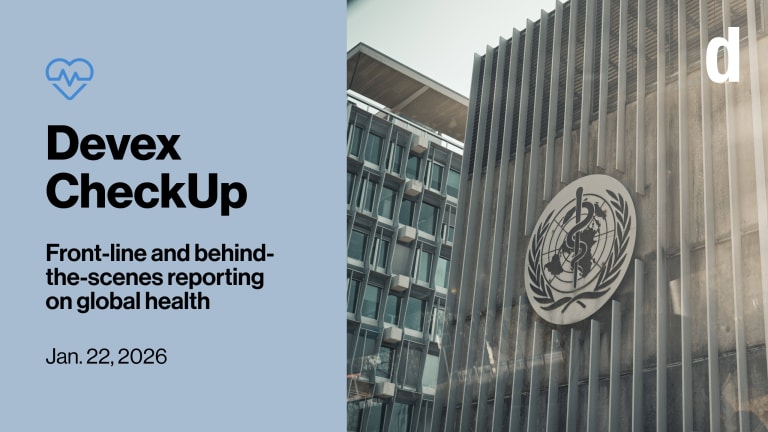
From monkeypox to the Marburg virus, myriad potential public health emergencies lurk behind COVID-19’s enduring grasp. The current COVID-19 pandemic is far from over but many of its legacies are already plain. For one thing, the greenlighting of new jabs is only half the story when it comes to mitigating potential suffering equitably as new crises take hold.
Marburg — characterized by a severe hemorrhagic fever — surfaced in July as the latest virus to watch after initial deaths were reported in Ghana. International alarm had already coalesced around monkeypox, a zoonosis with symptoms similar to smallpox. With over 22,000 cases confirmed, the World Health Organization has now declared it a global emergency.
No vaccines are available at a global scale for either. While rightly desired, it is hoped that the last three years have taught policymakers that securing sufficiently wide protection from disease is not accomplished purely in the laboratory.
Representatives from WHO member states met last month to begin a two-year drafting process for a new global agreement on how to prepare for future pandemics. Whoever holds the pen in follow-up summits would do well to take heed of the ongoing “vaxtortion” — corruption-related barriers to health care — now being documented in many of the world’s low-income nations.
We believe harmful “vaccine apartheid” could be avoided in future pandemics through the establishment of a WHO medicine pricing database.
—The slow rate of vaccine distribution to lower-income nations throughout the pandemic is well known and justly lamented. Less discussed has been vaxtortion, which impacts ordinary citizens around the world, entrenching poverty and inequity — both between and within countries — and compromising health outcomes.
Take Uganda as one example. Recent research undertaken by Transparency International found that almost 1 in 10 Ugandans had paid bribes to access COVID-19 vaccines. Meanwhile more than 1 in 5 reported leaning on personal connections to get their jabs.
The sums changing hands between patient and practitioner have not been trivial. Of the health facilities we examined in the East African nation, even at the center where the monetary value was the lowest, the amount needed for a bribe for a full course of COVID-19 vaccination was potentially devastating. The $1.80 charged equates to 95% of the money earned per day by those living on the national poverty line, which is $1.90 per person per day, according to data published by Development Initiatives.
Whistleblowing hotlines in Uganda have exposed cases of patients being asked to pay unexpected fees. The justification given has been that the money would be spent on advertising to promote further vaccine takeup. Evidence we gathered around the soliciting of vaccine certificates for cash indicated a road remains to be traveled in overcoming vaccine hesitancy across contexts, however. Bribes for certificates were also reported in Bangladesh, another country we looked at.
While bribery to jump the queue has a direct impact on equity, providing certificates without vaccination inevitably has deeper public health implications. In an era when the United Nations member states are targeting universal health coverage by 2030, of the $8.5 trillion spent on health services globally, almost 7% is lost to corruption. This translates to over $500 billion lost annually, which is more than enough to achieve health care for all — the funding gap is currently at around $370 billion.
This truth should focus minds as WHO develops the wording of its “Pandemic prevention, preparedness and response accord,” an agreement-in-the-making that it is already calling “historic.”
The accord may well earn historic status when its final drafting concludes in 2024, but only if the foundations of anti-corrupt practice are embedded within the document — namely transparency and accountability.
Reflecting on the insights established by whistleblowing hotlines during COVID-19, the new accord must commit to empowering independent civil society organizations to support the monitoring of health emergency responses. This must apply at the global, regional, national, and subnational levels. Mechanisms must be put in place which safeguard a minimum threshold of involvement of CSOs in all countries.
It's also essential that best practice around transparency is applied earlier in the development, sale, and distribution of vaccines and other medical products. Doing this will prevent a similar situation as when South Africa was forced to pay more than double the European Union price for Oxford-AstraZeneca COVID-19 vaccine doses.
We believe harmful “vaccine apartheid” could be avoided in future pandemics through the establishment of a WHO medicine pricing database.
The COVAX approach — a worldwide initiative aimed at equitable access to COVID-19 vaccines — should also be expanded in preparation for future pandemics, specifically through developing global or regional pooled procurement mechanisms for equipment and medicine.
Governments spend over $11 trillion or 12% of global gross domestic product on public procurement every year.
Contracts and pricing agreements between governments and pharmaceutical companies often remain confidential, despite the drugs being paid for with taxpayers’ money. Opaque contracts that keep the price and terms of vaccine purchases secret can hide corruption risks such as conflicts of interest.
People have the right to health and the right to obtain information, including that surrounding the vaccines they receive. Today we need a pandemic treaty to be drafted that upholds these human rights.









